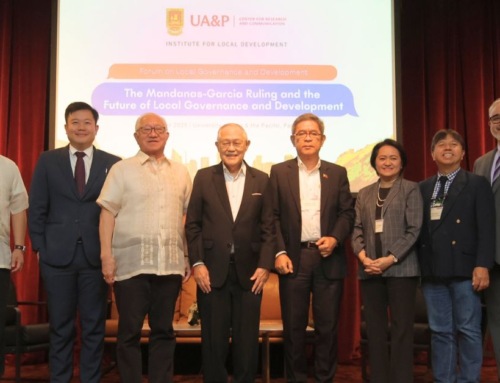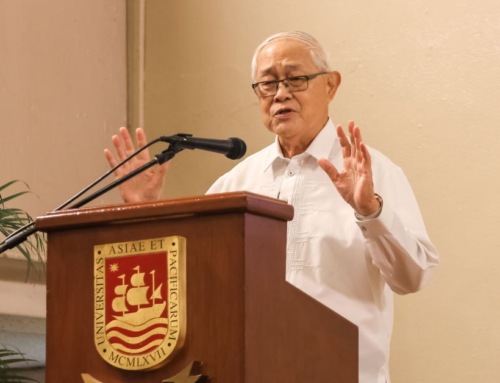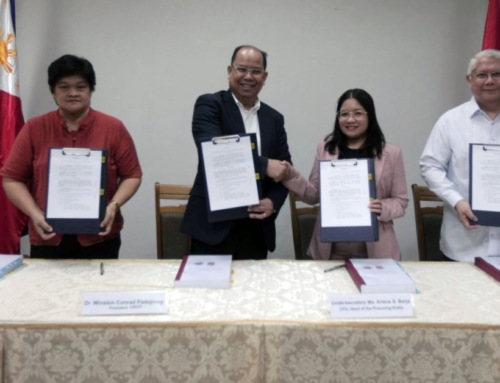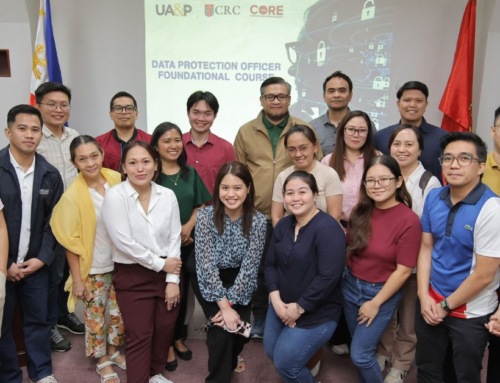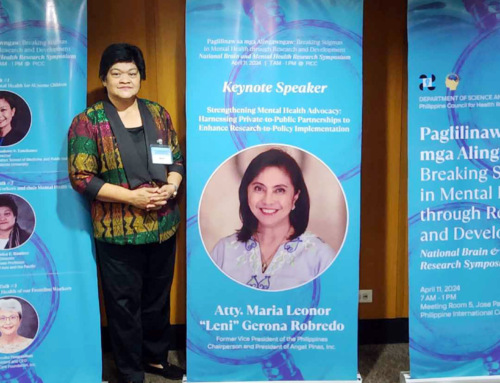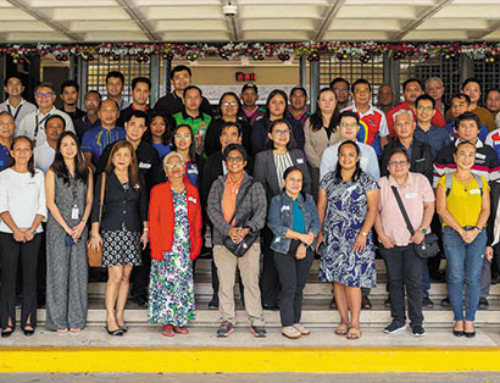This post was last edited on 2015-09-23 08:26:15
Round Table Discussion on Cooperatives in Agriculture
[ Photo: crcarch201509230826a]
The Center for Research and Communication conducted a Round Table Discussion on Agricultural Cooperatives on June 23, 2015 in the University of Asia and the Pacific, as part of the activities under the Leo Parma Professorial Chair for Social Entrepreneurship. Main speakers Dr. Eulogio Castillo, OIC Chairman of the Cooperative Development Authority, and Mr. Benjamin Dy of the UA&P School of Management discussed the Philippines’ past experience with integrated agricultural market systems, as well as the potential of the value-chain paradigm for improving Philippine agricultural productivity.
Dr. Eulogio Castillo, who was also a former Director of the Agricultural Credit and Cooperatives Institute (ACCI) of the University of the Philippines—Los Baños, gave an informative talk recounting the Agricultural Credit and Cooperative Financing Association (ACCFA) in the 1950s, which sourced funds, distributed them through cooperatives, and gave them to farmers (who were 95% smallholders at the time) for their production needs. ACCFA also provided consumption funds to help tide farmers over the 4 months in between harvests. Although much agricultural production at the time was subsistence, with small surpluses sold on the market, the government also set up a Greater Manila integrated market system, which capitalized on low-cost transportation from the Philippine National Railways as well as a cold storage facility at the FTI station en route to the Divisoria terminal and wholesale market. ACCFA also provided facility loans to cooperatives for building post-harvest facilities, with the result that surplus produce not bought domestically was sold through the Central Commodity Exchange of the Philippines to buyers abroad. Dr. Castillo learned later that the ACCFA system was designed to defeat the Hukbalahap Communist insurgency, and that once those rebel groups had normalized, business interests cut their support for ACCFA, which itself was transformed into a funding institution for land reform.
[Photo: crcarch201509230826b] Left: Dr. Eulogio Castillo; Right: Mr. Benjamin Dy[/caption]
Mr. Benjamin Dy of the UA&P School of Management shared his findings on more than 5 years of conducting capacity-building sessions with 100-plus cooperative clients of LandBank. From his experience working with cooperatives, Mr. Dy noted the challenges they face, such as a lack of market research, a lack of monitoring, and diverse business investments that do not complement one another in a value chain. Mr. Dy suggested the creation of linkages among credit cooperatives, contract farmers, and agri processors; and a shift to interdependent thinking among producer cooperatives connected by supply chains.
[Photo: crcarch201509230826c]
Participants at this RTD included Mercedes Castillo, CDA Administrator; representatives from the Culinary Arts Foundation of the Philippines and the Development Bank of the Philippines; Mr. Danny Venida and Mr. Tony Chua of FoodLink Advocacy Cooperative; Mr. Leo Parma, benefactor of the Professorial Chair on Social Entrepreneurship; and Dr. Veronica Ramirez, CRC Director for Operations. The RTD was facilitated by Mr. Bienvenido Nito of the UA&P School of Economics. Key comments from the participants included facilitating inter-cooperative collaboration by tapping into the Bayanihan ethos which is still alive in rural areas; the need for both values training and technical training for agricultural cooperatives and farmers’ associations to adopt a value-chain paradigm; and a suggestion to revive the cooperative funding and integrated marketing systems which had worked in the past.

